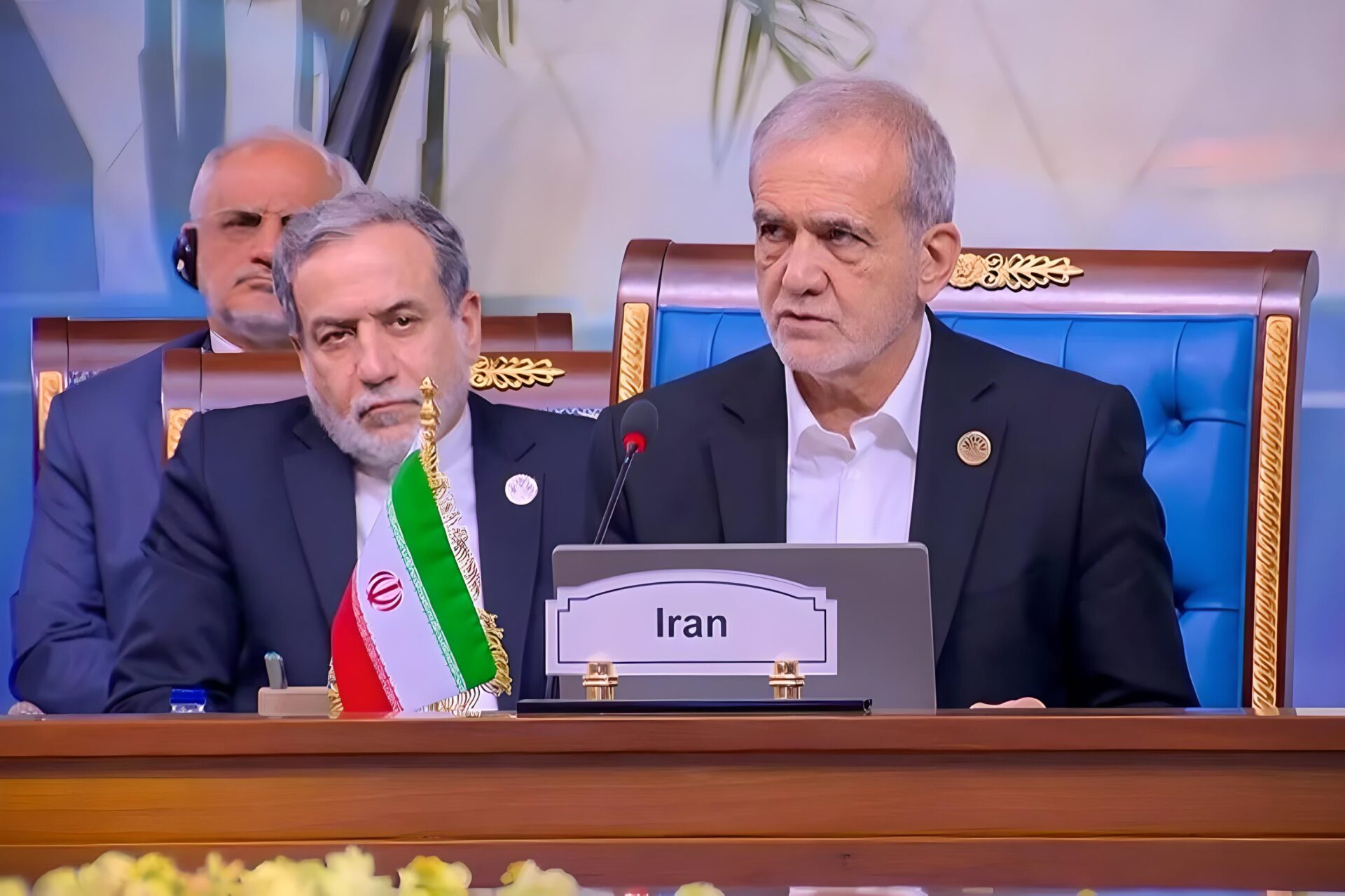Iranian President Masoud Pezeshkian says Tehran’s demands — that any road through Armenia sought by Azerbaijan should not jeopardize Iran’s border connections — have been met in the newly announced Armenia–Azerbaijan peace deal.
Iran’s Foreign Minister Seyed Abbas Araghchi confirmed the “corridor” concept is off the table, stressing that the project will instead be an Armenian-controlled transit road built under Armenia’s sovereignty and jurisdiction. At the same time, he cautioned that any foreign presence in the South Caucasus could have negative consequences for peace and stability, noting Tehran’s particular concern over the possible involvement of an American company in the project.
Speaking to Iranian media, Araghchi said Tehran remains in close contact with both Yerevan and Baku following the August 8 White House meeting, where Armenian Prime Minister Nikol Pashinyan, Azerbaijani President Ilham Aliyev, and U.S. President Donald Trump signed a joint declaration.
The connectivity project — officially named the Trump Route for International Peace and Prosperity (TRIPP) in honor of President Trump — is intended to provide unimpeded connectivity between mainland Azerbaijan and its western Nakhichevan exclave, with reciprocal benefits for international and domestic connectivity for the Republic of Armenia. Under the declaration, Armenia commits to working with the U.S. and “mutually determined third parties” to set forth a framework for the TRIPP connectivity project in Armenian territory.
“We are in constant consultations with the parties,” Araghchi told IRNA. “Our position is clear: we welcome peace between Armenia and Azerbaijan, support the sovereignty and territorial integrity of all regional states, and reject any border changes.”
According to the minister, the Armenia–Azerbaijan statement is based on three principles: respect for sovereignty, respect for territorial integrity, and opposition to altering borders — fully in line with Iran’s stance.
“The corridor issue has been completely set aside; this is about a transit road built under Armenia’s sovereignty and jurisdiction,” he said. The project, Araghchi noted, will reportedly be implemented by an Armenian-American company registered and operating under Armenian law.
However, he warned that any foreign presence in the South Caucasus could have “negative consequences for peace and stability,” adding that the possible involvement of an American firm is a concern for Tehran. “We have always raised this matter with both sides and will continue to monitor developments closely,” he said. “So far, our principled positions have been respected, but the possible presence of the American company is a cause for concern and we will continue our consultations in this regard.”
Iran’s President Masoud Pezeshkian also addressed the matter, telling journalists that Foreign Minister Araghchi had briefed him on the details. “This corridor is not what has been exaggerated in the media. Iran’s demands have been met,” Pezeshkian said, according to the Tasnim news agency. He elaborated that the framework preserves territorial integrity, establishes a connection with Europe, and ensures no cutoff with the north — points that met Iran’s conditions.
During a phone conversation today with President Pezeshkian, Prime Minister Nikol Pashinyan presented the results of the Washington negotiations, emphasizing the opportunities the peace agreement opens for the region. He stressed that regional communication channels will operate within the framework of territorial integrity, sovereignty, and jurisdiction of countries, and on the basis of reciprocity.
Pashinyan also noted that the TRIPP has no military component, poses no threat to Iran, and could even open new avenues for regional cooperation involving countries such as Iran and Russia. “This project can become a good opportunity to start economic cooperation between the Islamic Republic of Iran and the United States, and between the Russian Federation and the United States,” he said.
According to Tasnim, during the conversation, the Iranian President told Armenian Prime Minister Nikol Pashinyan that it is essential to ensure the new transit route serves as a genuine path for peace and development in the region, rather than becoming a means for external powers to impose their own hegemonic interests.
Expressing gratitude for President Pezeshkian’s objective assessments of the Washington agreements, Prime Minister Pashinyan also highlighted the importance of the Iranian President’s upcoming visit to Armenia, which Foreign Minister Seyed Abbas Araghchi announced on August 7 is scheduled to take place in two weeks.
Iran’s Foreign Minister Seyed Abbas Araghchi announced that Armenia’s Deputy Foreign Minister Vahan Kostanyan, who coordinates bilateral relations with Iran, will visit Tehran on Tuesday. This was confirmed by Armenian Foreign Ministry spokesperson Ani Badalyan in a statement to Armenpress.


